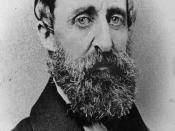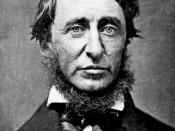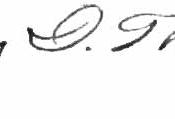Government exists to serve the people yet many of its practices are intolerable when viewed through one's conscience. Henry David Thoreau argues in his "Civil Disobedience" that an individual should exercise his right to revolt against unjust laws and should abide by the rules of his conscience. Through the use of rhetorical strategies and a logical argument, Thoreau appeals to the individual, urging him to rise against unfair laws and stand up for the universal right. Thoreau constructs his argument to stress the importance of an individual's ethics and morals, while ridiculing government and those who support it.
Thoreau expresses his disdain toward unfair government by providing logical reasons to discredit it. He begins by asserting that "government is best which governs least," (224) and carries this logic further stating "government is best which governs not at all," (224). He clearly displays his view on the role of government, believing that it serves no beneficial purposes; instead portrayed as a useless "wooden" gun which the people do not require because they themselves can be better as well as an institution that forces inhumane oppressions on those who deserve it least.
However, Thoreau admits that society remains unprepared for no government, so according to him, man should at least be obligated to check the progression of government and insure that it does not reach father than it should. He believes that government should not intervene in the lives of its subjects and especially not force them to take actions which make them less humane. Thoreau elaborates this concept of inhumanness when comparing "[masses] of men" to "machines" (226). Through this metaphor he argues that men become less human when they serve government obediently, such as soldiers who will fight and mercilessly kill in order to be patriotic and serve...


